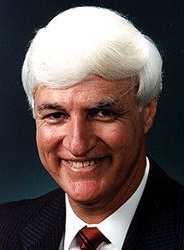Another notice via Mano Singham of a worth-while article by a “politically conservative” writer, Stephen M. Walt. (Though I think Mano has mistakenly linked to an article about Walt’s article and not the Walt article itself.) Some of Walt’s words of wisdom as cited by Tom Boggioni …..
Noting a New York Times piece that marveled at Kim’s transformation, Walt dismissed it out of hand.
“America’s self-defeating tendency [is] to portray adversaries as irrational, crazy, deluded, risk-seeking, suicidal, or just plain nuts,” he wrote. “Instead of seeing foreign-policy disputes as the product of straightforward conflicts of interest or clashing political values, even well-experienced U.S. officials and knowledgeable pundits are prone to seeing them as a reflection of personality defects, paranoia, or distorted views of reality.”
“Similarly, many Americans continue to view international terrorists as deeply disturbed, irrational, deluded, or simply crazy individuals, instead of seeing them as politically motivated, calculating, and more or less rational actors who have adopted a particular tactic (sometimes including the use of suicide bombers) because they believe (with some basis) that it offers the best chance of realizing their political aims,” . . . . .
He then wrote,
“Some of the individual attackers may indeed be driven by wholly fictitious beliefs, but to dismiss these groups and their leaders as simply crazy underestimates their own resilience, strategic behavior, and capacity to adapt.”
It’s always been this way, hasn’t it? During the Cold War era weren’t we always being told how deluded the various liberation and anti-imperialist movements were — they had fallen for the crazy communist propaganda. And the Palestinians, too, are irrational, crazy, deluded, suicidal hate-filled terrorist lovers who just want to kill Jews. And as for those Muslims, well, ……

